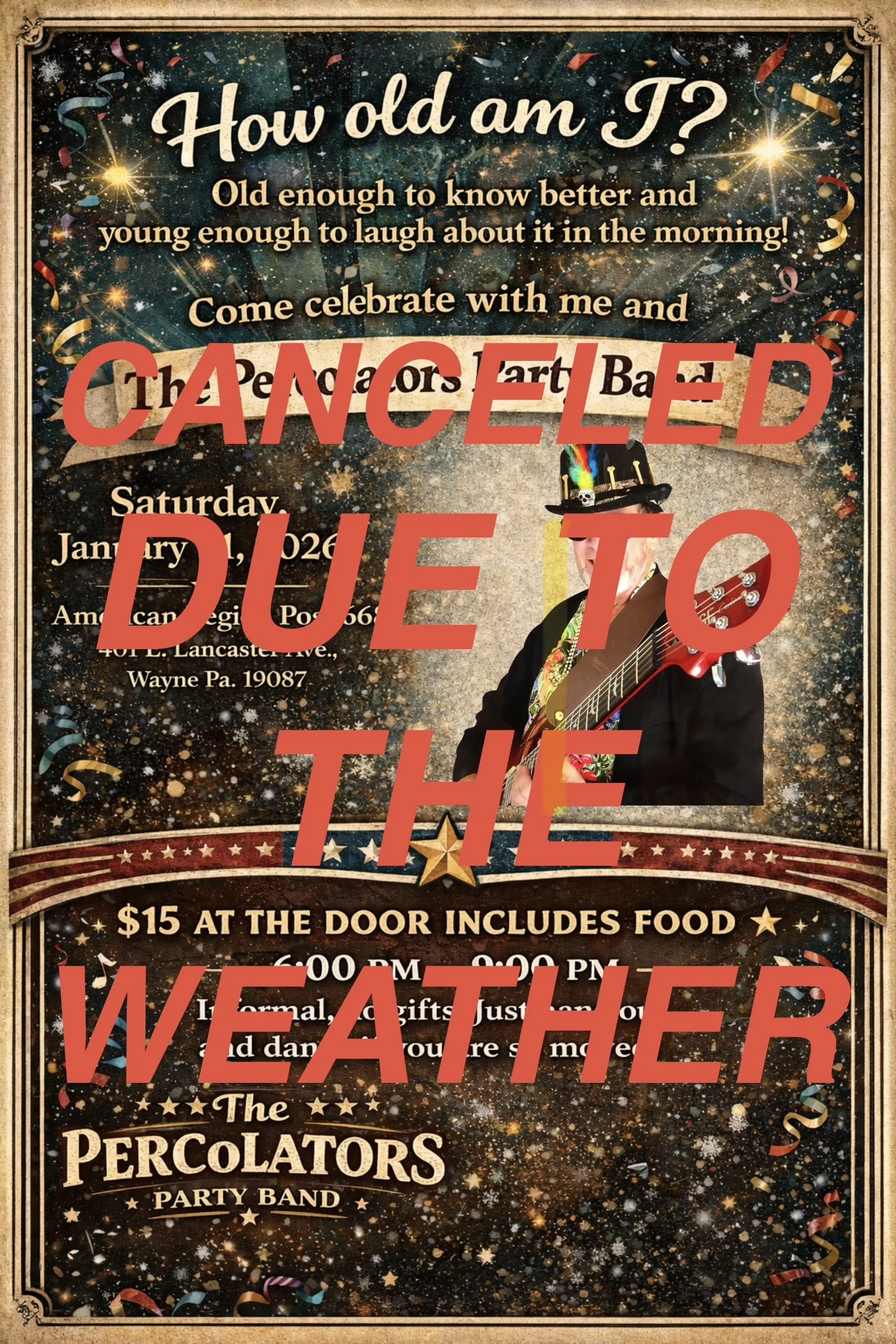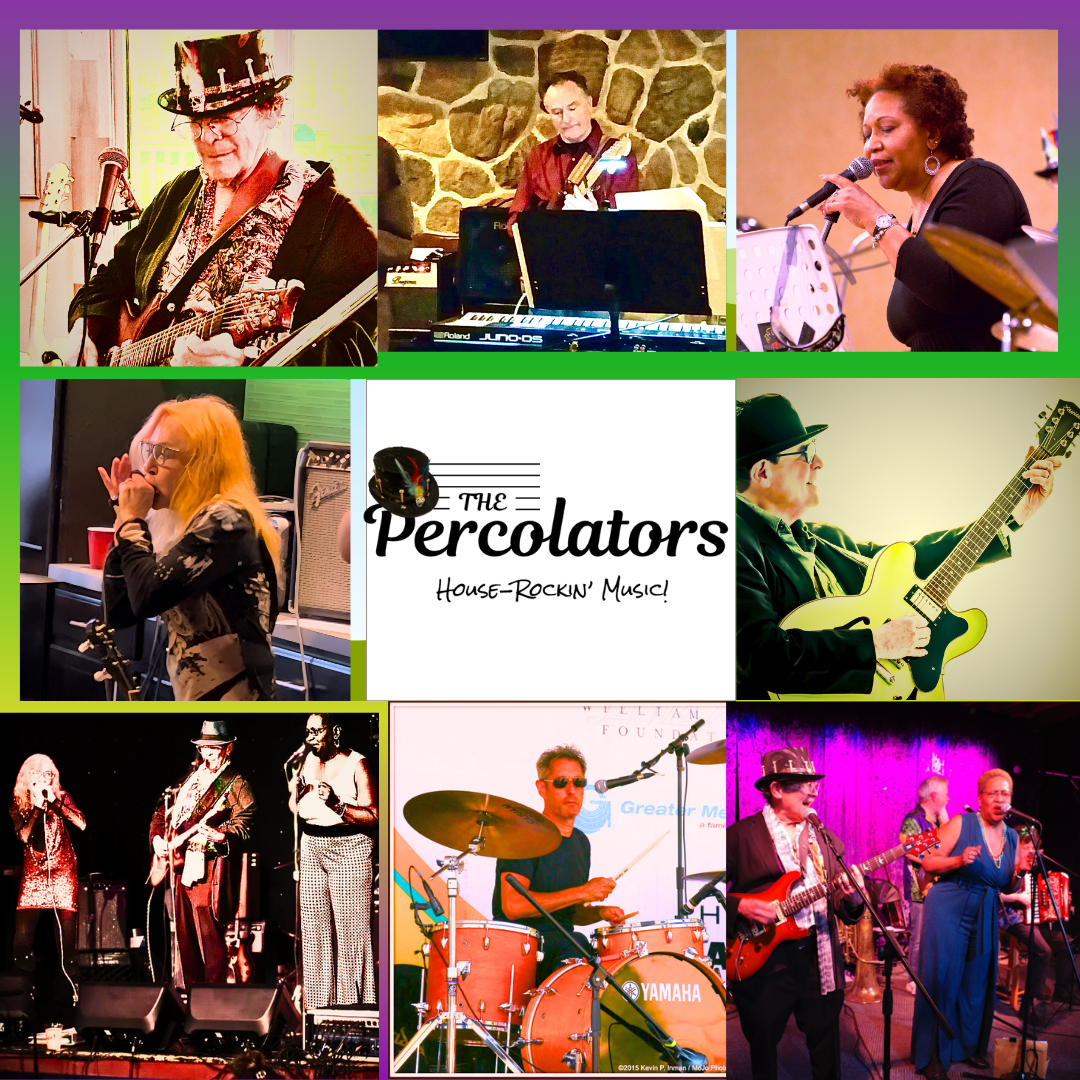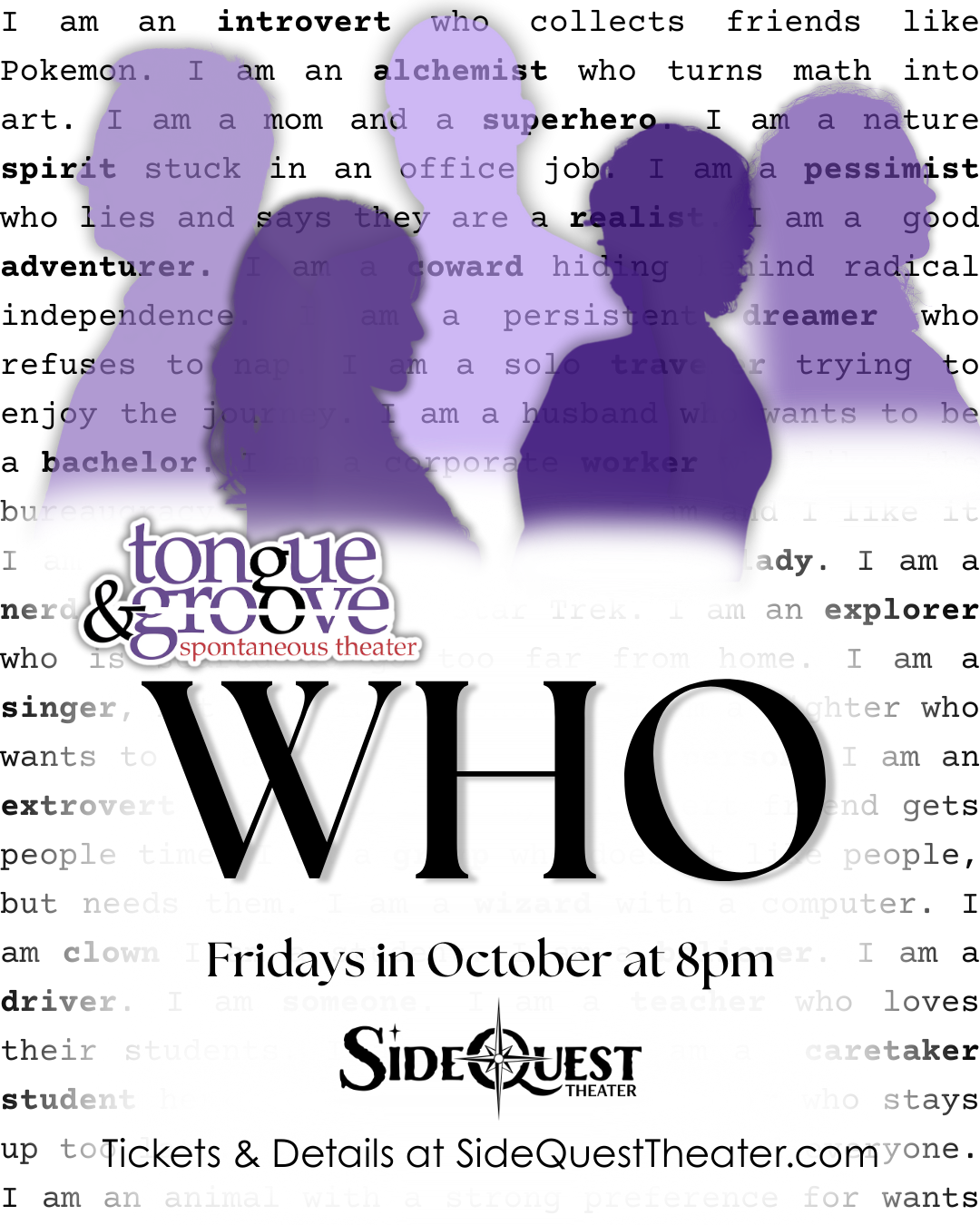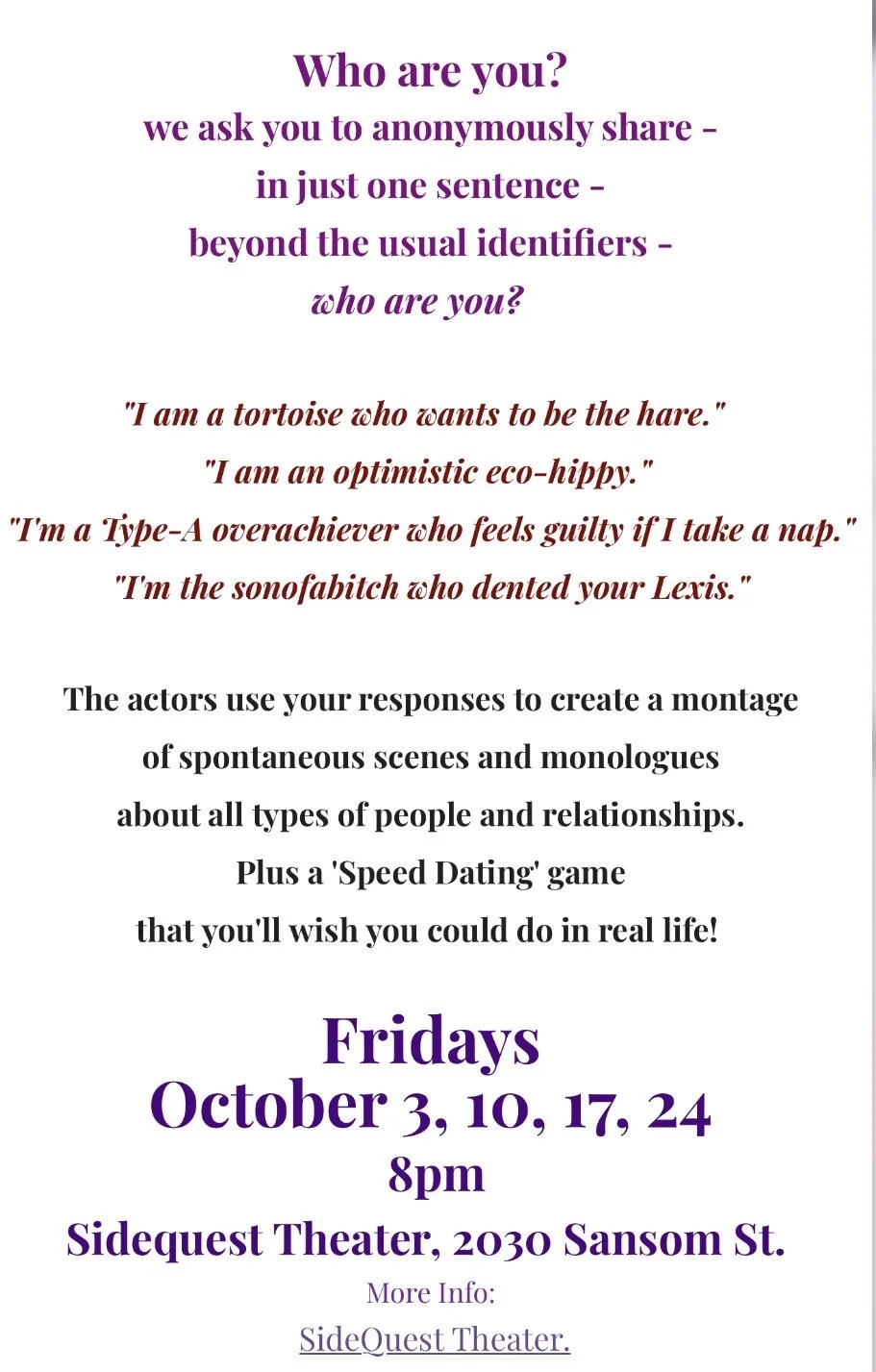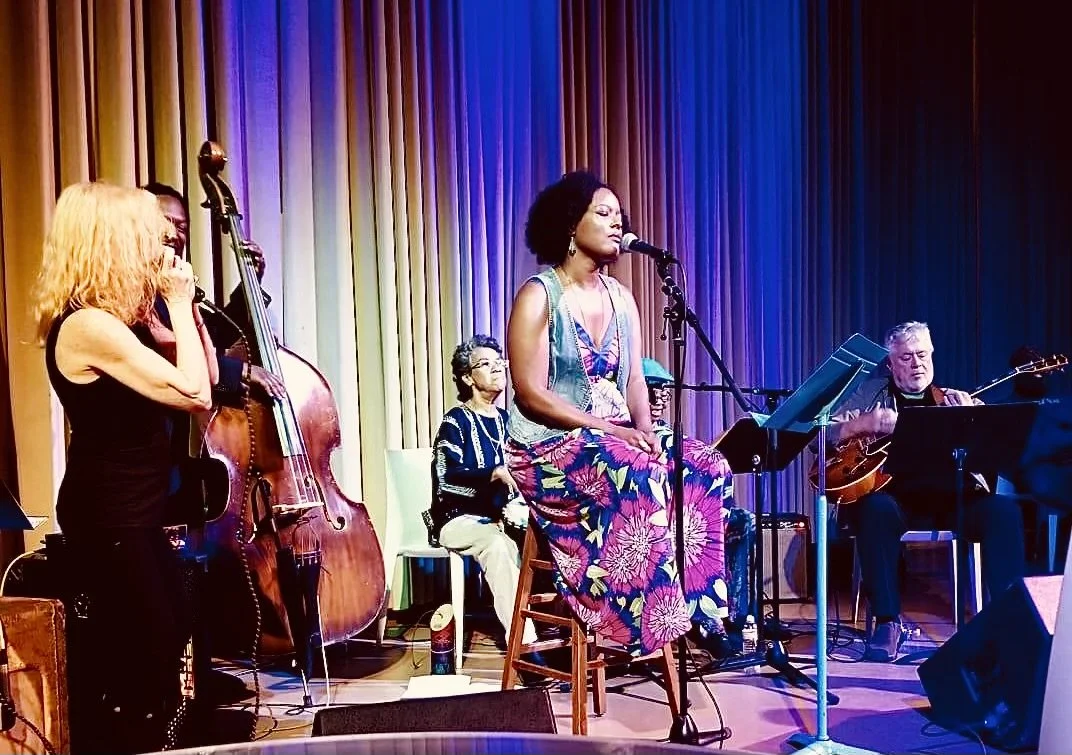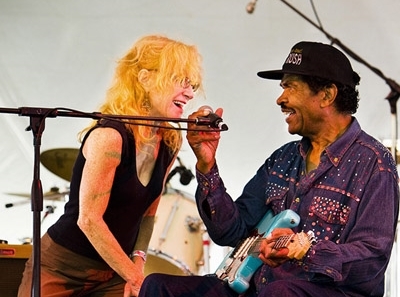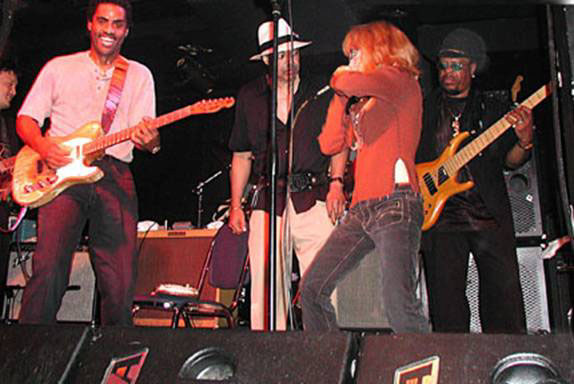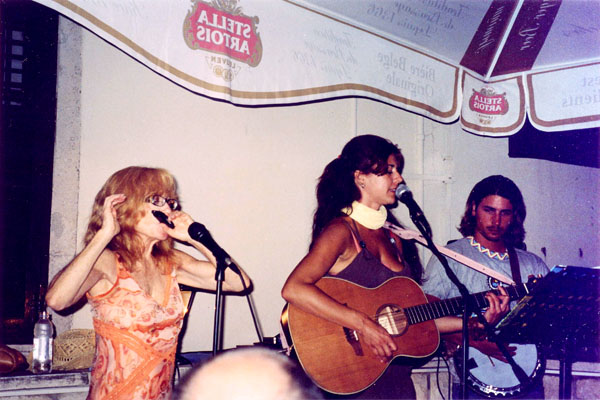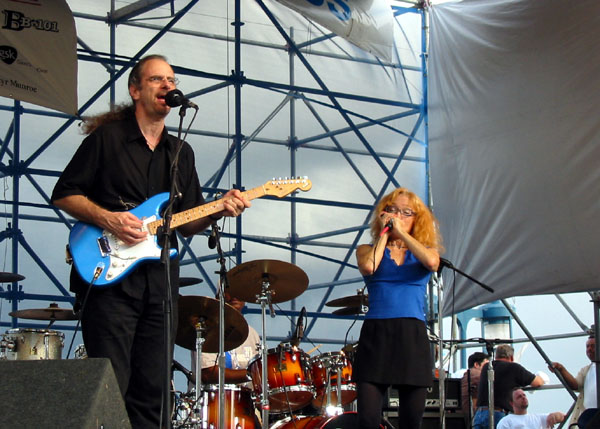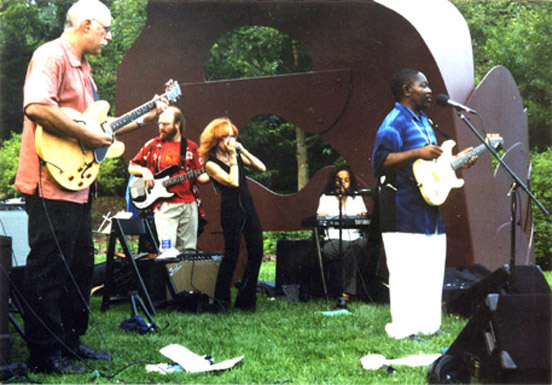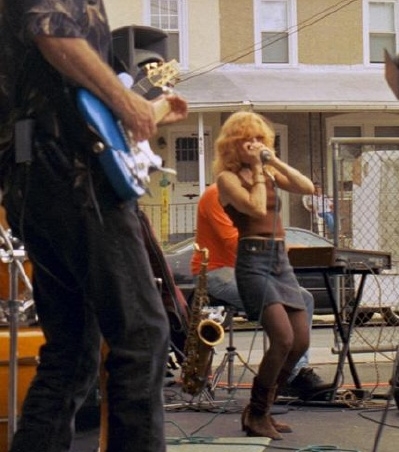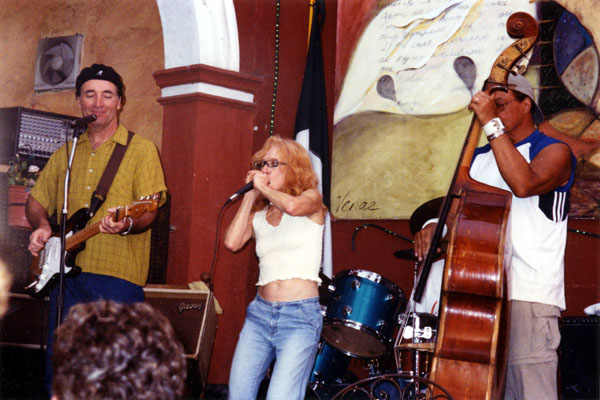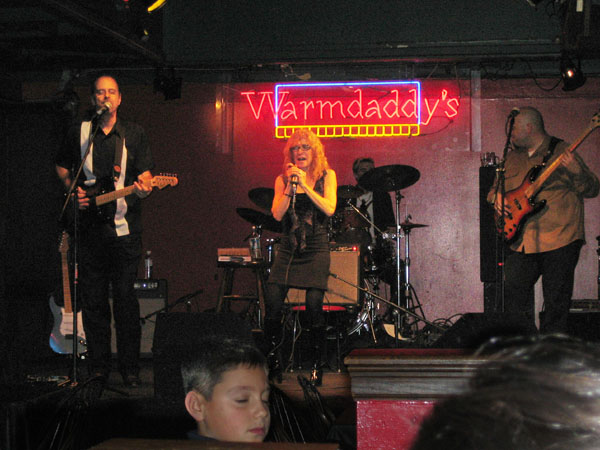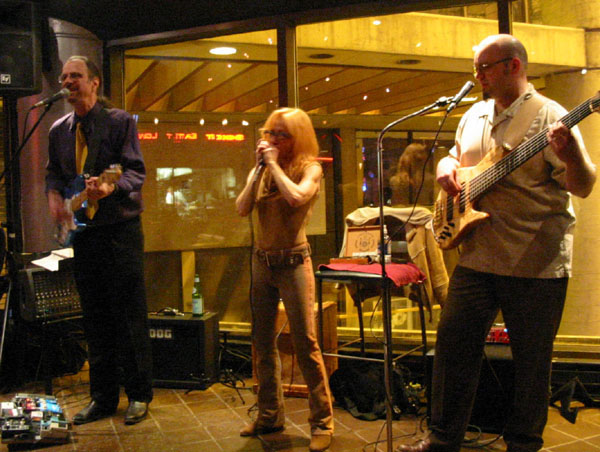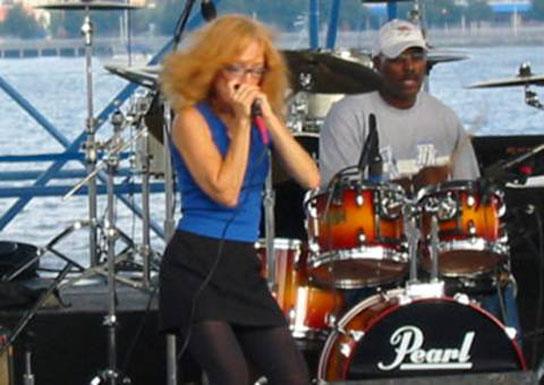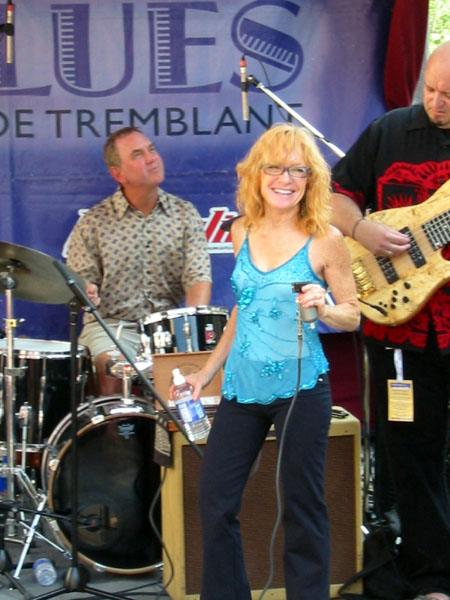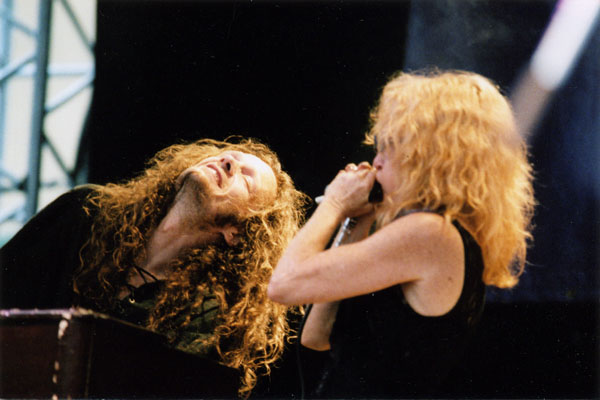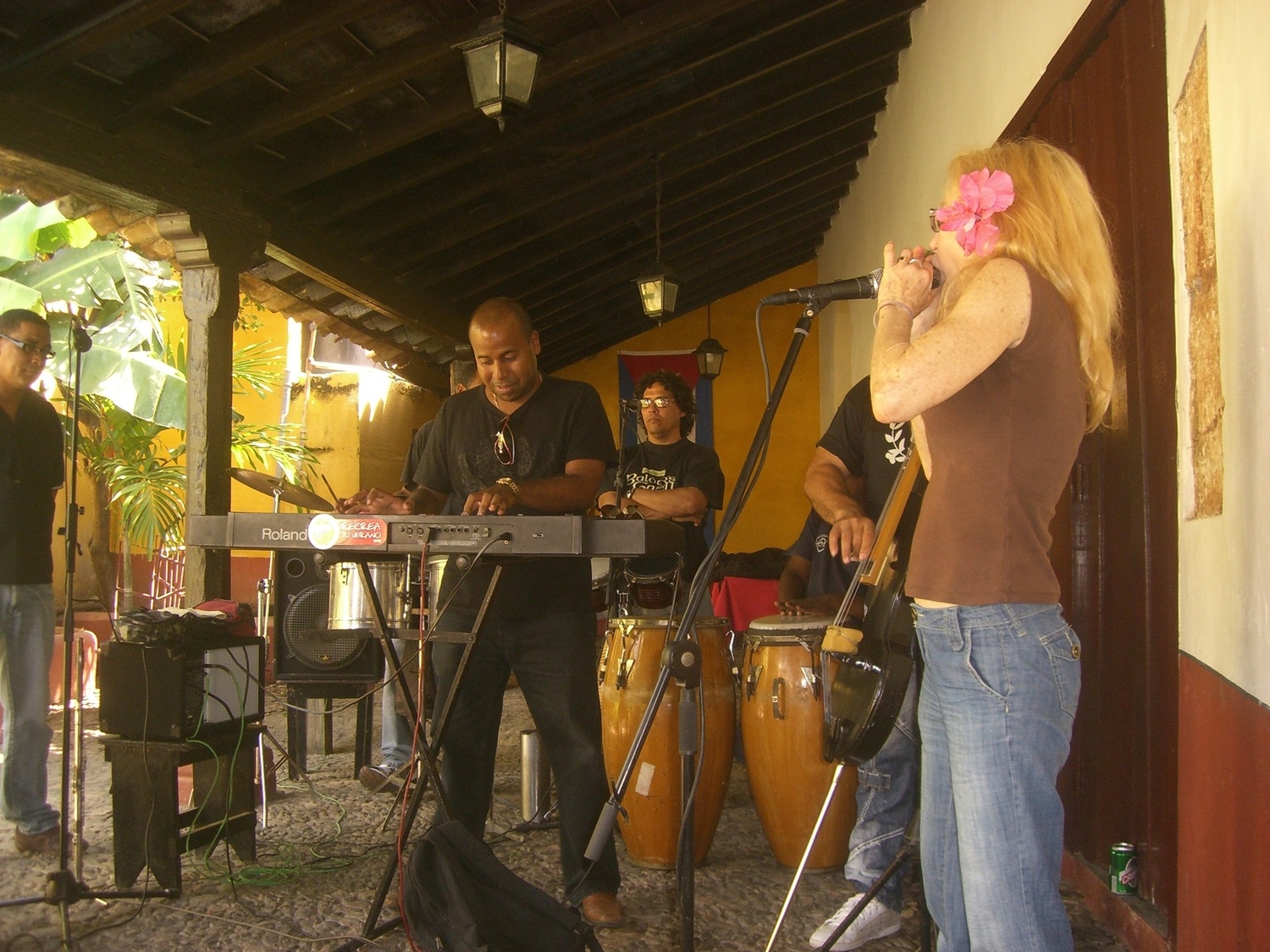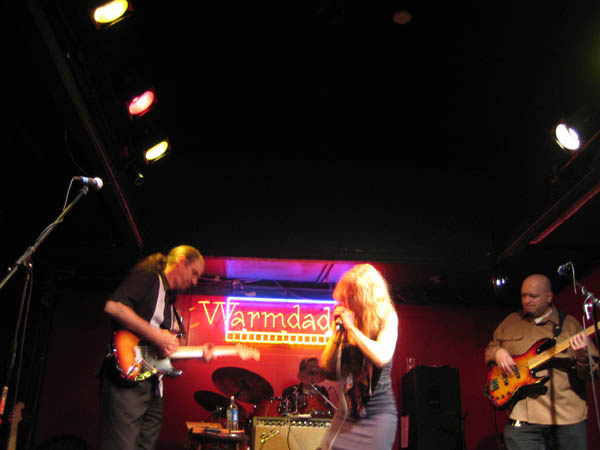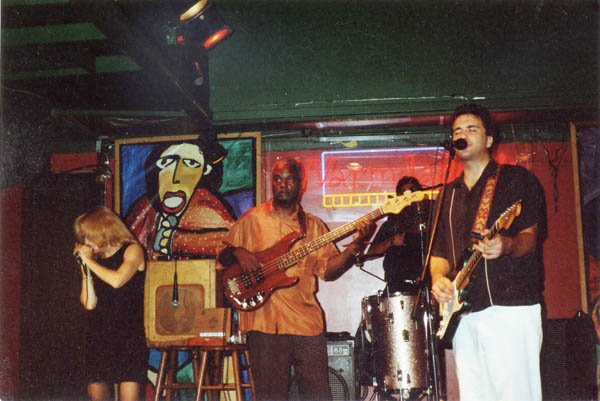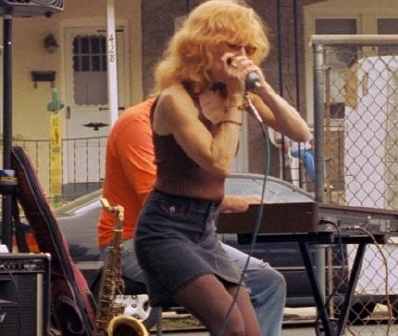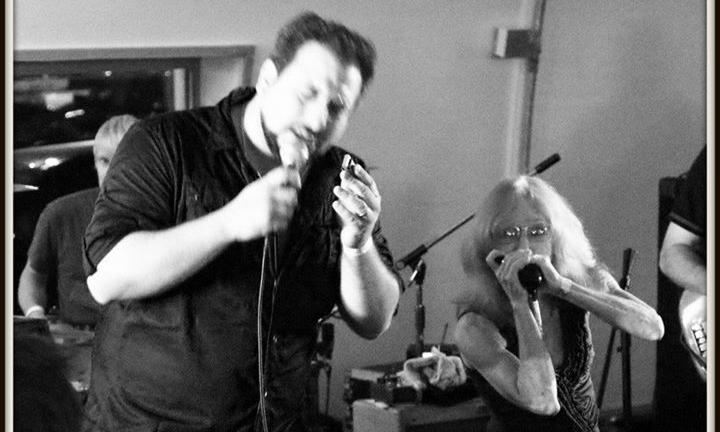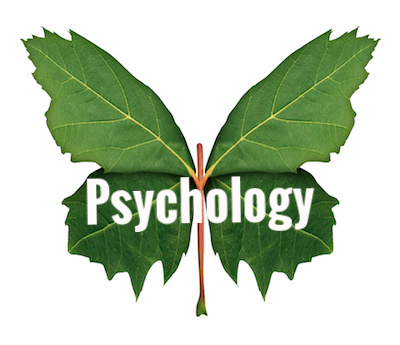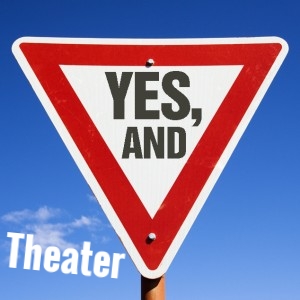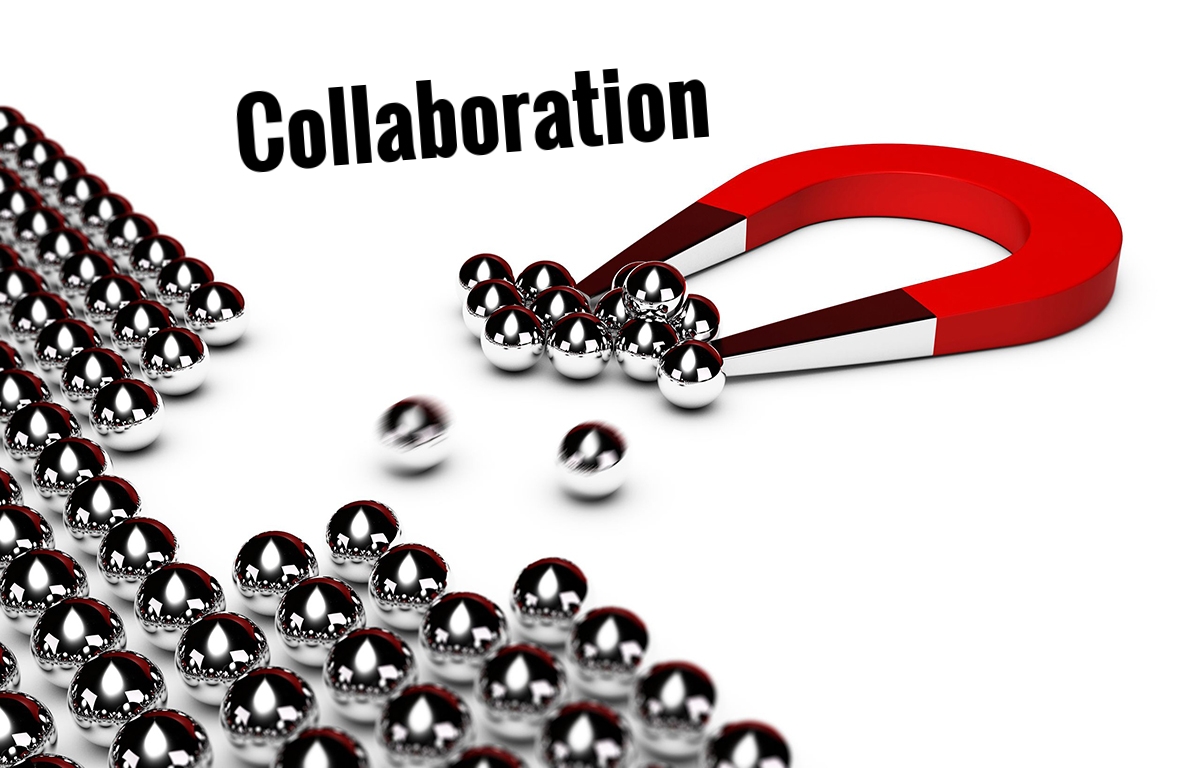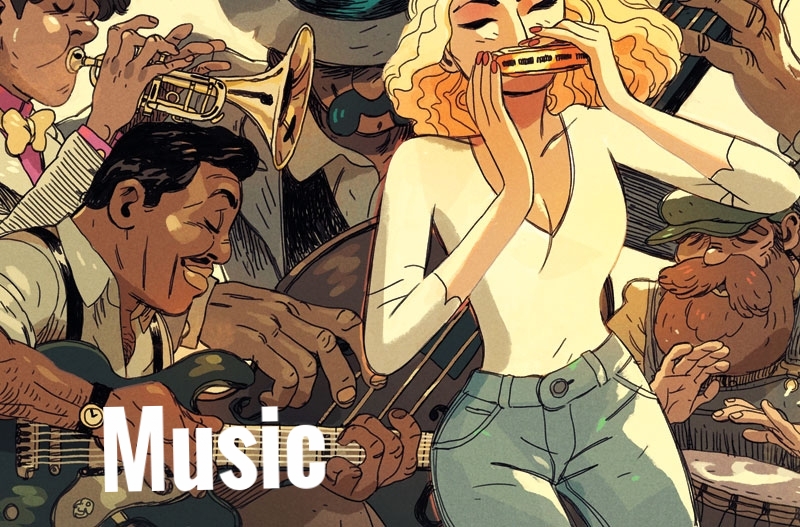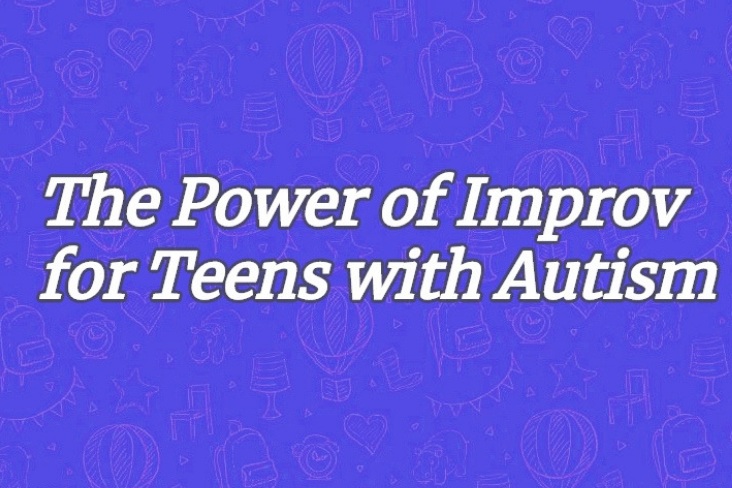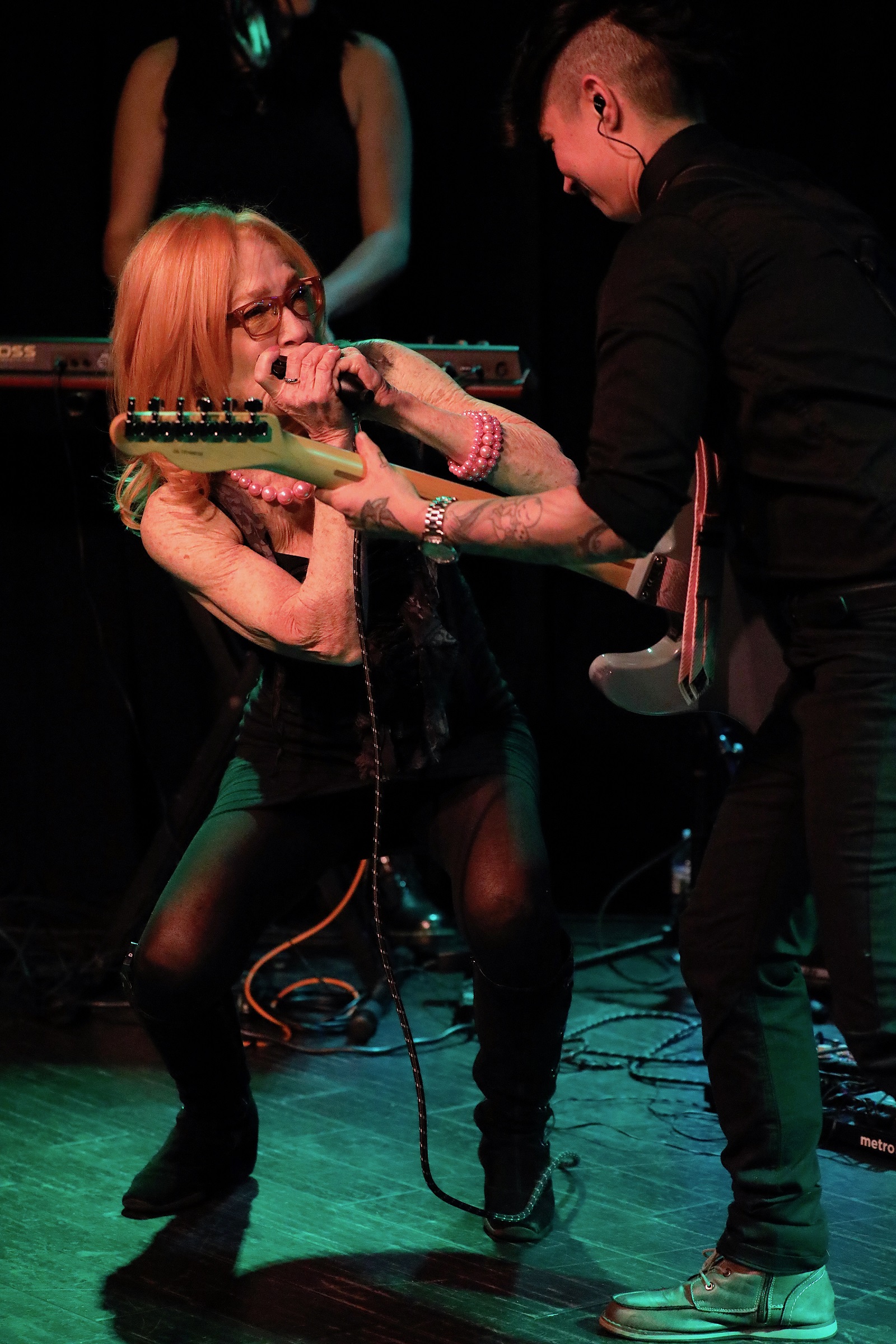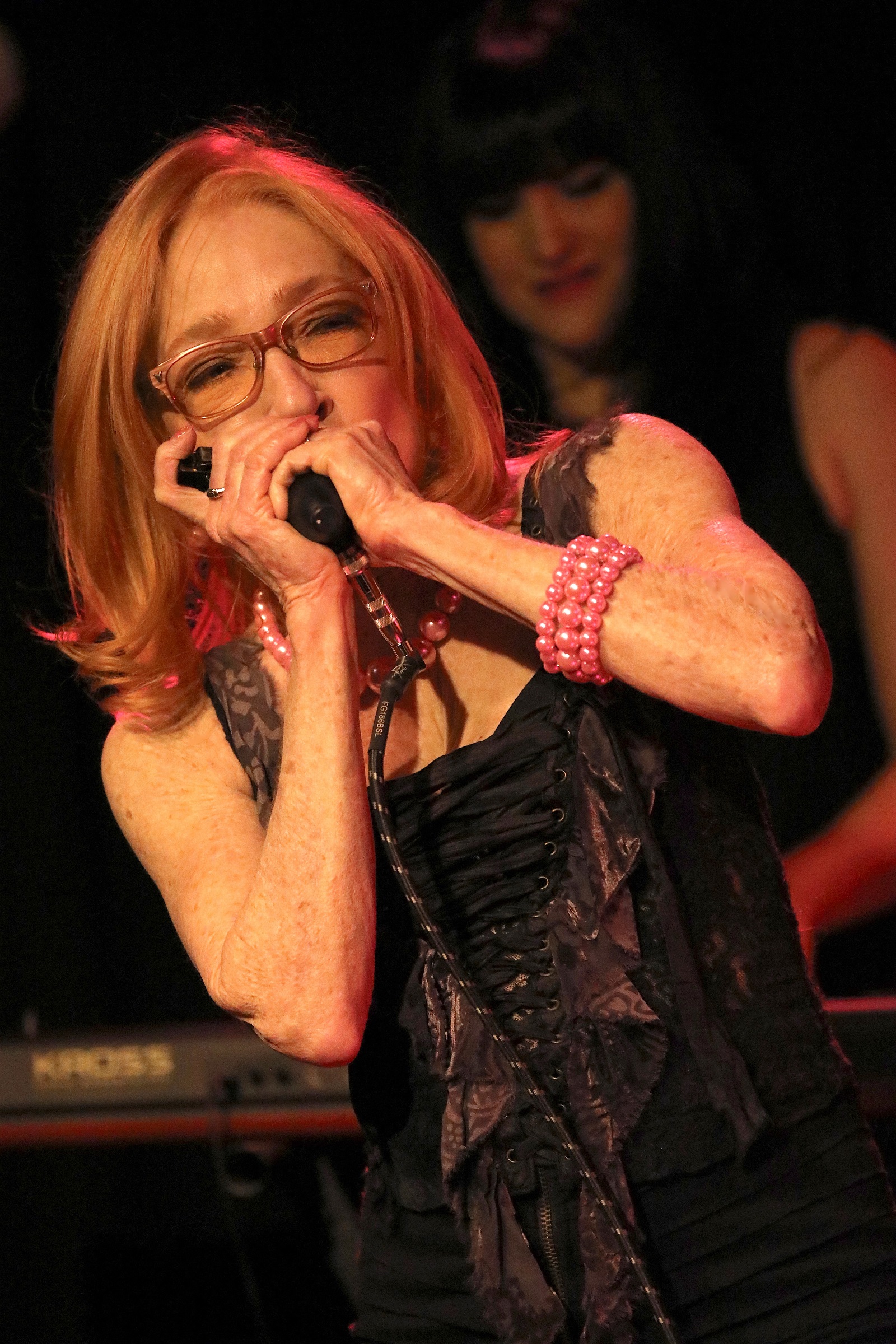Volume 1 is out now !
I’m honored to be featured on the song Searchin’ from SlaughtHER’s new album Volume One.
SlaughtHER is a new project by Kari Wahlgren featuring amazing artists from Philly to LA. Making this album with so many talented artists was an amazing experience. You can stream it on all major platforms, or you can support her directly by buying it directly from Keri at:
The Remedy Project on WHYY
Meet Movers and Makers exploring and discovering new sides of themselves and others. The Remedy Project allows health professionals to connect with their inner jazz musician. The Remedy Project is a musical collaboration between healthcare workers and local jazz musicians to create and interpret as well as new and original music. The goal is to increase opportunities for Philadelphia musicians to be creative and take new risks,, and to expand the audience for the music itself. This video features an interview and music with Carol, see below for highlights and video time-stamps.
HIGHLIGHTS from the PBS video below include an interview and music with Carol...:
8:22 - 10:50
13:47 - 14:08
VIDEO LINK HERE: https://video.whyy.org/video/lost-and-found-myqko3/
The Remedy Project: The Arts Of Healing
The Remedy Project: The Arts Of Healing is a musical collaboration between local Jazz Musicians, Healthcare Workers and Medical Professionals working together to create and interpret classic, as well as new and original music. This mixtape series acknowledges the critical role our medical professionals and healthcare workers play in our regional health and examines their impact on our personal lives.
DOWNLOAD REMEDY PROJECT MIXTAPE #1 HERE
Released October 2018
Featuring: Barbara Montgomery | Jazz Doctors | Jim Dragoni | Beth Arnold Gilbert | Carol Moog | Wanda Farmer | Adam Faulk | Mark Margolies | Kim Pedro Rodriguez
“Just be yourself!” Try telling that to a teen with autism! Much of the time when they’re just “being themselves” it’s considered wrong. They’ve been told that the way they pass papers in class, answer when called on, eat lunch or make a joke is “inappropriate,” “argumentative” or just plain “weird.”
But what if there was a new entry point into being yourself for teens with autism?
As it turns out, the world of improvisational (improv) theater is rooted in one of the most powerful tools to help kids just be themselves.“Yes, and…” (in sharp contrast to “Yes, but….”) is a technique that is at the heart and core of improv theater. As a psychologist working with kids on the spectrum, I’ve used my background in improv for years to support social skills. “Yes, and…” works and it’s fun.
For creativity and reciprocal communication to flow between two or more people, agreeing is better than arguing. With students we test this by starting with the “Yes, but” style. Players pair up with the goal of planning a party. The first player says, “Let’s have tons of balloons!” and the other player says, “Yes, but they’re so hard to blow up, let’s have huge piles of crepe paper instead.” Then the other players say, “Yes, but crepe paper just gets squishy, we should make a big sign with glitter.” With each new offer, the idea is rejected and the discussion quickly collapses into an argument, going nowhere fun.
Then we try the “Yes, and” game. In the same pairs, every offer (such as the balloons), no matter how silly or disliked, is enthusiastically met with “Yes! and…” with new ideas added to build on what is heard (e.g., “We’ll fill them with water and throw them at everyone!”). Invariably, this new game ends in wildly improvised worlds of sheer goofiness and laughter.
“Yes, and…” is not a new improv game. We’re learning in the psychology world that the underlying concept of radical acceptance can be used to frame how to be with others outside of games. The acceptance model of improv demonstrates a way to “just be yourself” in social situations without needing to be “right” or argue.
Teaching kids with autism how to agree grounds them in the actual experience of just being themselves with others, not trying to understand an explanation of how they should behave.
I like to teach this technique to families, teachers, and counselors because it’s easy to practice and fun to use. For people on the autism spectrum, who may be used to defending their personal positions or are often left feeling misunderstood, this improv strategy creates a feeling of belonging and reciprocity.
Starting from a position of saying an internal “Yes” to what a teen with autism is doing generates an opportunity for shifting a stressful dynamic into positive engagement. How? It promotes flexibility and creativity in ourselves. When we accept behaviors as offers, we are acknowledging that we don’t know all the answers and learn through what emerges, what is improvised, and what is in the moment. We are modeling and experiencing “being ourselves” without being stuck in preconceived ideas about right and wrong.
Exciting new research is emerging on the effects of improv theater techniques in helping kids on the spectrum be their best selves. It builds emotional awareness, reciprocal interactions, social cognition, and imagination. Everything we can do to help kids say yes to the offers of others and focus on saying yes to the offers of our kids pays off in building real confidence, self-acceptance, and a sense of connection. Let’s work hard to stop working so hard and just say yes!
Carol Moog, PhD, is a licensed psychologist with over 40 years of experience, specializing in helping people on the autism spectrum. Her work is relationship-based and geared toward discovering unique personal resources, clarifying goals and building social skills. Founder of ImagineAct, Dr. Moog uses her training and experience as a theater improviser/actor, professional harmonica player and marketing communications consultant in her practice and in her research. Dr. Moog (www.carolmoog.com) is co-author of The Autism Playbook for Teens with Irene McHenry PhD.
Harmonicist hits all the right notes for autistic teens
by Len Lear via Chestnut Hill Local
If the devil ever contacted me (he’d have to email me because I do not have a cellphone) and offered me anything on earth in return for my soul, I think I would ask for the ability to be a great blues harmonica player. To me that is about the best sound in the world, right up there with the sound of the Tchaikovsky Violin Concerto or the Mozart Clarinet Concerto.
Well, since I never did master that skill, listening to Carol Moog play the blues harmonica is the next best thing. Harmonica master Carol Moog, who launched the No Alibi Blues Band in 1984 with the late, great blues singer, Zan Gardner, who played often in the Chestnut Hill area, is now part of the Tattar Tucker Moog Jackson Blues Band, (You can check out Moog in “I Put a Spell on You,” the Screamin’ Jay Hawkins blues classic, with the Tattar, Tucker & Moog trio on YouTube.)
“I started playing classical piano and jazz piano as a kid,” Moog said in an interview Sunday, “but I could not improvise the way I wanted to. My hands wouldn’t do what was in my mind. Early in college I started listening to harmonica players. I bought harmonicas and began playing to recorded music. I found that I could replicate sounds. It was intuitive.
“I was intrigued with Fats Domino and Elvis, among others, so I started playing in a garage band after undergraduate school. They were decent players, but they did not play the blues, so I started my own band where I could perform the music I wanted to and I could improvise.”
Moog, 72, grew up in Drexel Hill and later in Penn Valley. This talented musician also had some impressive academic notes to play, ending up with a master’s degree from Penn in counseling psychology in 1969 and a Ph.D from Penn in school psychology in 1981. She became a consulting psychologist for several schools in the Philadelphia area, worked in a mental hospital for eight years and has had a private psychotherapy practice in Bala Cynwyd for the last 37 years, specializing in helping people with social learning disorders.
Carol says she was a shy child, which may have something to do with the fact that “I liked working with shy people. I felt I could be a presence with them. I could work with them through poetry, music and other disciplines. Music is a great communicator, and I can often relate (to a patient) through music. Psychology and music feel congruent to me. It is all about a level of communication.”
Along with Irene McHenry, Ph.D, Moog co-authored a book entitled “The Autism Playbook for Teens” (New Harbinger Publications, 2014) that led to numerous public appearances and media interviews and was the recipient of euphoric reviews.
For example, Wendy Ross, M.D., Director, Center for Pediatric Development Founder, Autism Inclusion Resources, wrote, “As a physician, I have personally seen the impact of mindfulness strategies on my patients and their families … ‘The Autism Playbook for Teens’ is a gift to families affected by autism and to anyone interested in overcoming stress and reaching their potential. If I had to recommend one thing for a toolkit for life, this book would be it.”
In the book, the authors emphasize the need for mindfulness, particularly among those on the autism spectrum. (Mindfulness is defined as “the psychological process of bringing one’s attention to experiences occurring in the present moment, which can be developed through the practice of meditation and other training.”)
“Those with autism are anxious,” said Dr. Moog. “Starting with sensory issues, mindfulness, meditation, breathing and relaxing put the focus on something other than anxiety. The body can be a safe haven. You quiet the mind, which gives you a distance from automatic reactivity.”
In addition to a thriving full-time psychotherapy practice, Dr. Moog plays with the 10-year-old Tattar Tucker Moog Jackson Blues Band two or three times a week as well as other bands. She plays every Sunday for brunch at Jamie’s House of Music in Lansdowne, and she also plays with an improvisational theater group, Tongue and Groove Spontaneous Theater, locally and in festivals nationally.
“As it turns out,” said Dr. Moog, “the world of improvisational theater is rooted in one of the most powerful tools to help kids just be themselves. As a psychologist working with kids on the spectrum, I’ve used my background in improv for years. It works, and it’s fun.”
About the Autism Playbook for Teens:
Teens with autism have the potential to be excellent actors. They are natural observers-able to study, imitate, and learn social behavior. The Autism Playbook for Teens is designed to bolster these strengths with mindfulness strategies and role-playing scripts, while also helping teens reduce anxiety, manage emotions, be more aware in the present moment, and connect with others.
This book offers a unique, strengths-based approach to help teens with autism spectrum (including Asperger's Syndrome) develop social skills, strengthen communication, and thrive. The activities contained in each chapter are custom-designed to work with the unique perspectives, sensory processing, neurological strengths and challenges that teens with autism bring to their encounters with the social world. By engaging in these activities, teens will gain an authentic awareness of their surroundings, leading to better social interaction that is also rewarding, interesting, and fun.
The delightful and creative activities in this book are grounded in well-documented clinical observations and current empirical studies. They also take into account the real neurological differences that exist in young people with autism, and focuses on the unique pathways needed to connect with and inspire these exceptional and fabulous teenagers.
This is the only book available for teens with autism that specifically integrates mindfulness skills and imaginative scripted role-playing activities for building authentic social experiences.
I was interviewed by Dr. Dan Gottlieb, Ph.D for Voices In The Family on WHYY, which you can listen to HERE or below.
MOOG'S MUSIC
NEWS
Tattar Tucker Moog and Jackson has a new album! Check it out HERE. Upcoming shows HERE
Tattar Tucker Moog Jackson is dedicated to finding and honoring the root of contemporary music. Whether it’s traditional blues, boogie-woogie or rock‘n roll, it all comes back to that root. TTMJ takes audiences on a jaunt through the American Roadhouse of beat, melody and emotion to the root of raw blusical expression. The group’s debut release features arrangements of some of the most exemplary songs in their ubiquitous repertoire. Big Bill Broonzy, Muddy Waters, Willie Dixon, Irma Thomas, Joe Turner and even John Prine get the TTMJ back-to-the-root treatment.
I am proud to announce the publication of my new book (co-authored with Irene McHenry): The Autism Playbook for Teens: Imagination-Based Mindfulness Activities to Calm Yourself, Build Independence, and Connect with Others. Check out some recent press for the book on my press page HERE. My events page has all the details on all my upcoming music, theater and book release offerings. Thanks so much for visiting the new www.carolmoog.com!
